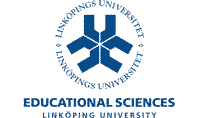
|
Visa svensk kursplan |
|
COURSE CATEGORY Fristående kurs MAIN FIELD OF STUDY SUBJECT AREA Natural Science in a School Perspective |
COURSE CODE | 926G07 |
* account for the concept of sustainable development within the perspectives - the ecological, the economic and the social, and communicate the relationship between these both orally and in writing.
* understand learning processes for sustainable development and plan own lectures where contents and relationships are integrated.
* analyse complex relationships, international reports and research results in the form of primary literature (research articles) both in subject didactic research and in the research concerning the different perspectives of sustainable development.
* assess and communicate scholarly knowledge on the basis of the sustainability perspective.
* draw conclusions and interpret results based on current discussions and official international statements and research reports, and understand what it means to turn these into learning processes.
* participate in qualified discussions of different subjects e g climate change, human resource utilisation, global sustainable development, global environmental policy, sustainable consumption, global health issues and biodiversity.
The course contents cover our modern society's emergence and the requirements of individuals in different situations. Human resource utilisation, dispersion of chemicals, energy usage, the climate issue, diets, water and air are discussed on the basis of the values these create for us, but also the drawbacks we have to deal with at the same time.
Future generations' ability to handle these situations is crucial for a sustainable development. The preconditions concern explaining these in teaching practices. Strong problem orientation, cooperation across disciplinary boundaries and the ability to communicate complex relationships based on different knowledge domains together with others are essential.
Students failing an exam covering either the entire course or part of the course two times are entitled to have a new examiner appointed for the reexamination.
Students who have passed an examination may not retake it in order to improve their grades.
The course is carried out in such a way that both men´s and women´s experience and knowledge is made visible and developed.
|
||||||||||||||||||||||||||||||||||||||||||||||||||||||||||||||||||||||||||||||